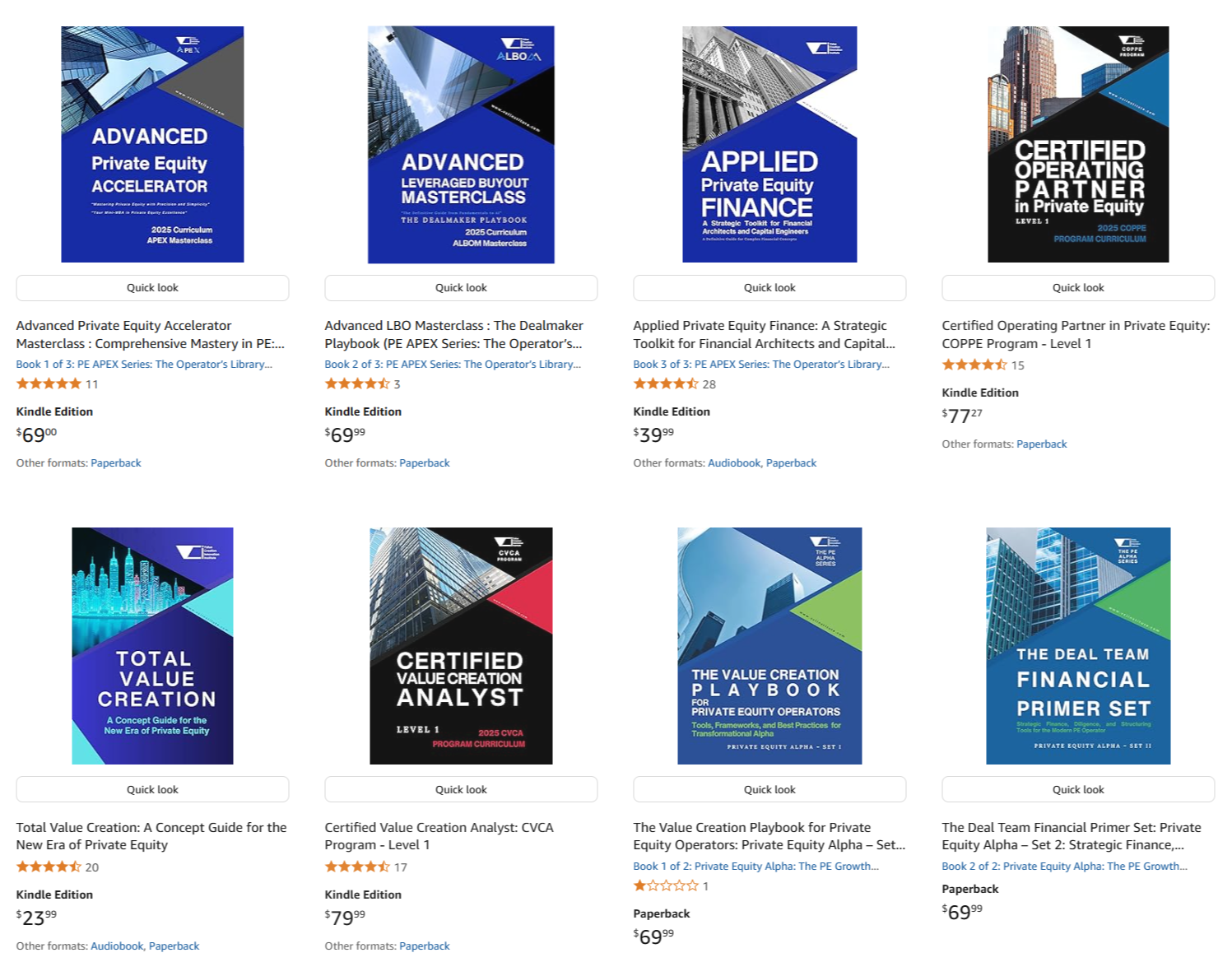The New War Room: How Geopolitical Chaos Rewrites Private Equity Strategy
Aug 07, 2025
From supply chain warfare to regulatory fragmentation, geopolitical uncertainty forces private equity to evolve beyond financial metrics into strategic intelligence operations
Private equity firms built their success on a fundamental assumption: that globalization was irreversible, markets were predictable, and political risk was something that happened to other people's portfolios. That assumption is now as obsolete as the pre-2008 belief that real estate prices only go up.
Today's geopolitical landscape isn't just volatile—it's weaponized. Trade has become warfare. Supply chains are national security assets. Technology transfer is espionage. And private equity firms that once treated geopolitical risk as a footnote in their investment memos now find themselves operating in an environment where political intelligence is as critical as financial analysis.
This isn't a temporary disruption that will normalize once political tensions ease. This is the new baseline. The era of frictionless global capital flows is over, replaced by a world where every investment decision must account for supply chain nationalism, technological decoupling, and regulatory fragmentation.
For private equity, this transformation represents both an existential challenge and a generational opportunity. The firms that adapt their investment frameworks, operational playbooks, and risk management systems to this new reality will capture disproportionate value. Those that don't will find themselves holding stranded assets in a world that no longer operates according to their investment thesis.
The Fragmentation Accelerates
The geopolitical shifts reshaping private equity aren't abstract policy debates—they're concrete business realities that show up in quarterly earnings calls, supply chain disruptions, and deal negotiation sessions. Understanding these forces requires moving beyond traditional country risk assessments toward dynamic threat modeling that accounts for the increasing weaponization of economic policy.
Economic Nationalism Goes Mainstream
The protectionist impulse that once seemed confined to fringe political movements has become orthodoxy across the political spectrum in major economies. This isn't merely about tariff rates or trade agreements—it's about a fundamental reordering of how governments view economic interdependence.
Countries are increasingly treating economic policy as national security policy. The result is a regulatory environment where foreign investment screening has expanded far beyond traditional defense contractors to include semiconductors, telecommunications, artificial intelligence, and even consumer brands deemed strategically significant.
Supply Chain Warfare
The pandemic revealed the fragility of global supply chains, but geopolitical competition has turned that fragility into a weapon. Countries are using export controls, import restrictions, and supply chain dependencies to project power and coerce behavior in ways that directly impact private equity portfolios.
Consider the semiconductor industry, where U.S. export controls on advanced chip manufacturing equipment have forced companies throughout the supply chain to choose sides. Portfolio companies that historically operated as neutral suppliers to global markets now find themselves navigating a world where customer access depends on geopolitical alignment.
This dynamic extends far beyond high-tech industries. Critical minerals, pharmaceutical ingredients, and even basic manufacturing inputs are becoming geopolitical chokepoints that can strangle portfolio companies with limited geographic diversification.
The Cyber Dimension
Cyber warfare has evolved from an IT security concern to a core component of geopolitical competition. State-sponsored attacks targeting intellectual property, operational systems, and customer data represent a new category of investment risk that traditional due diligence processes struggle to assess.
Private equity firms are discovering that cybersecurity isn't just about protecting their own systems—it's about evaluating whether portfolio companies are vulnerable to state-backed attacks, whether their technology partnerships expose them to foreign intelligence operations, and whether their data handling practices comply with increasingly divergent national security requirements.
Portfolio Impact: Where Theory Meets Reality
Geopolitical risk isn't an abstract concept for portfolio companies—it's showing up in margin pressure, operational disruptions, and strategic constraints that directly impact the value creation playbook that private equity relies on.
The Margin Squeeze
Tariffs and trade restrictions are creating margin pressure that can't be easily passed through to customers. A manufacturing company that built its competitive advantage on low-cost Asian production finds itself facing tariff rates that eliminate its cost advantage while lacking the time and capital needed to rebuild domestic production capabilities.
Currency volatility, often triggered by geopolitical events, adds another layer of complexity. Private equity firms that once could model currency impacts as temporary fluctuations now face sustained periods of exchange rate instability that fundamentally alter the economics of their investments.
The response can't simply be financial engineering. Portfolio companies are being forced to reconsider fundamental operational decisions about where to manufacture, how to source materials, and which markets to prioritize based on geopolitical considerations that may persist for decades.
Operational Complexity
Regulatory fragmentation is creating operational complexity that extends far beyond compliance costs. Companies that once operated with unified global policies for data handling, technology deployment, and market entry strategies now need region-specific approaches that account for conflicting regulatory requirements.
A software company serving both European and Chinese customers faces impossible choices about data localization, algorithm transparency, and government access requirements that make unified product development nearly impossible. The operational overhead of managing these conflicting requirements can eliminate the scale advantages that justified the original investment thesis.
Exit Environment Disruption
Geopolitical uncertainty is fundamentally altering exit dynamics in ways that extend far beyond public market volatility. Strategic buyers are becoming more risk-averse about acquisitions that involve complex regulatory approvals, international operations, or technology transfer concerns.
The result is a bifurcated exit market where domestic transactions with minimal regulatory complexity command premium valuations, while cross-border deals face significant discounts and extended timelines. Private equity firms are discovering that their hold periods are extending not because of operational challenges, but because the exit environment has become systematically more difficult to navigate.
The Intelligence Advantage
Leading private equity firms are responding to geopolitical complexity not by avoiding it, but by building systematic capabilities to understand, anticipate, and navigate political risk. This represents a fundamental evolution in how private equity approaches investment decision-making.
Beyond Traditional Due Diligence
Traditional due diligence processes that focused on financial performance, market position, and operational efficiency are proving inadequate for evaluating investments in a geopolitically complex world. The new standard requires deep analysis of supply chain vulnerabilities, regulatory exposure, and political sensitivity that most firms lack the expertise to conduct internally.
Sophisticated firms are building relationships with geopolitical intelligence providers, former government officials, and regional experts who can provide insights that don't appear in financial statements or management presentations. This intelligence gathering isn't one-time due diligence—it's ongoing monitoring that informs portfolio management decisions throughout the investment lifecycle.
The process includes stress-testing investment theses against various geopolitical scenarios, evaluating how supply chain disruptions would impact operations, and assessing whether regulatory changes could fundamentally alter the competitive landscape.
Dynamic Risk Modeling
Static risk assessments that evaluate countries or sectors as high or low risk are being replaced by dynamic models that account for the complex interactions between political developments, economic policies, and business operations. These models need to be updated continuously as geopolitical situations evolve.
The most advanced firms are using scenario planning methodologies that consider multiple potential futures rather than trying to predict single outcomes. This approach allows them to identify investments that will be resilient across various geopolitical scenarios rather than optimizing for a single expected future.
Portfolio Resilience Engineering
Rather than simply diversifying across geographies, leading firms are building portfolio resilience through strategic positioning that accounts for geopolitical interdependencies. This means understanding how political developments in one region could cascade through supply chains, customer relationships, and competitive dynamics to impact companies in seemingly unrelated markets.
The approach requires deep analysis of value chain dependencies, critical input sources, and market access requirements that could be disrupted by political developments. Portfolio companies are being pushed to develop alternative sourcing strategies, diversify their customer bases, and build operational flexibility that allows rapid adaptation to changing geopolitical conditions.
The Strategic Response
Private equity firms that successfully navigate geopolitical complexity are implementing systematic changes to their investment processes, portfolio management approaches, and risk management frameworks. These changes represent more than tactical adjustments—they're fundamental reorientations of how private equity creates value.
Investment Strategy Evolution
Investment strategies that once prioritized global scale and supply chain efficiency are being rebalanced to emphasize resilience, diversification, and political acceptability. This doesn't mean avoiding international investments, but rather being more sophisticated about how international exposure is structured and managed.
Firms are increasingly favoring investments in companies that serve domestic markets, have diversified supply chains, or operate in sectors that are less sensitive to geopolitical disruption. When making international investments, there's greater emphasis on local partnerships, regulatory compliance capabilities, and operational flexibility.
Operational Value Creation
The value creation playbook is expanding beyond traditional operational improvements to include geopolitical risk mitigation as a core component of portfolio company development. This means helping companies build supply chain alternatives, develop compliance capabilities, and navigate regulatory complexity as sources of competitive advantage.
Portfolio companies are being encouraged to invest in technologies and processes that reduce their dependence on geopolitically sensitive suppliers, markets, or technologies. This might mean higher upfront costs, but it creates more sustainable competitive positions in an uncertain world.
The most successful firms are treating geopolitical risk management as a proactive value creation opportunity rather than a defensive necessity, helping portfolio companies build market positions that benefit from other companies' geopolitical vulnerabilities.
The Future Landscape
The geopolitical forces reshaping private equity aren't temporary disruptions that will return to pre-2020 norms. They represent structural changes in how the global economy operates that will define investment opportunities and constraints for decades to come.
Understanding this new landscape requires recognizing that geopolitical risk is becoming systematically more important relative to traditional financial and operational risks. The firms that build sophisticated capabilities for navigating this complexity will capture disproportionate opportunities as less-prepared competitors struggle with increasingly frequent geopolitical disruptions.
The Strategic Imperative: Private equity's next competitive advantage won't come from superior financial modeling or operational expertise—it will come from the ability to navigate geopolitical complexity as a core competency. The firms that build these capabilities now will define the industry's next era of outperformance.
This transformation requires more than adding geopolitical expertise to investment committees or conducting enhanced due diligence on international deals. It requires fundamentally rethinking how private equity creates value in a world where political considerations increasingly override economic efficiency.
The private equity firms that emerge strongest from this transition will be those that embrace geopolitical complexity as a source of opportunity rather than viewing it as an obstacle to their traditional strategies. In a fragmented world, the ability to navigate fragmentation becomes the ultimate competitive advantage.
We have many great affordable courses waiting for you!
Stay connected with news and updates!
Join our mailing list to receive the latest news and updates from our team.
Don't worry, your information will not be shared.
We hate SPAM. We will never sell your information, for any reason.


